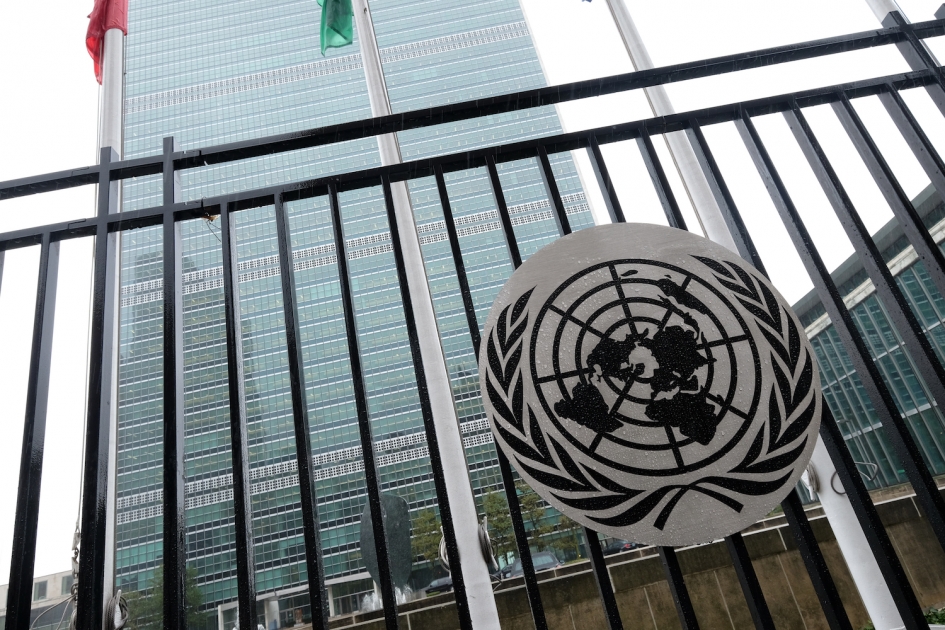Statement by Vassily Nebenzia, Permanent Representative of Russia to the UN, at the UNSC meeting on the situation in Yemen
Mr. President,
We thank Special Envoy of the Secretary-General M.Griffiths and Under-Secretary-General M.Lowcock for their review of the political and humanitarian situations in Yemen.
We continue to closely monitor the developments in the Republic of Yemen, where a bitter conflict has been going on for six years by now. This conflict has a negative bearing on stability and security of this country and the region at large.
We are concerned that armed action continues in Yemen, which brings much suffering to the civilians in the first place. Humanitarian problems and challenges come to the forefront, asking for prompt response of the global community. Another grave cause for concern is UN reports about a lack of financing for basic aid programs, which leads to the scale-down of such programs, including those aimed at ensuring food security of the population, access to drinking water and medical services. Given that the years of conflict crippled the national health-care system of Yemen, collective action is required to help Yemenis respond to the pandemic. We call upon donors, i.a. from the regional countries, to enhance their relevant support. At the same time, humanitarian assistance should be unbiased. One must not group ordinary Yemenis as “the good” and “the bad” ones.
However, humanitarian situation in the country can fully improve only once the conflict finds its political and diplomatic settlement. There is and there can be no military solution to the conflict in Yemen. So far the implementation of major arrangements, including the Riyadh Agreement, the Stockholm Agreement, and the Hodeidah Agreement, does not yield the desired result, which is universal ceasefire, and inclusive intra-Yemeni dialogue. Stalling of these agreements might entail further escalation which will be beneficial only for terrorists and extremists, who can use Yemen to expand their influence far beyond the borders of this country.
We support efforts of M. Griffiths. We understand the difficulties he has to face when providing mediator efforts. What is most important is that the sides in Yemen express general understanding and acceptance of the fact that they need nation-wide dialogue to talk the future of their country. Thereby it is crucial that opinions of all political, social, ethnic and religious groups in Yemen be taken into account. We also understand that “the devil is in the detail", that is why the plan proposed by M.Griffiths has not been endorsed yet. For that matter, we must mention the problem of SAFIR tanker. We believe that sides can come up with mutually acceptable solutions only once they give due account to each other’s interests.
Russia maintains contacts with all interested sides in Yemen and abroad and continues to encourage their search for compromise to support the UN efforts and Mr. Griffiths personally. We will act in favor of United Nations Mission to support the Hodeidah Agreement. We expect that our colleagues in the UNSC, as well as the international partners will stick to the same course.
Mr. President,
The situation in Yemen directly impacts the region of the Middle East, the Persian Gulf, and the Red Sea. The issue of interconnectedness of crises in the Middle East can be a point for academic discussion, but for us there should be no doubt about that. It is our firm conviction that efforts to settle the conflict in Yemen and address other country situations in the region must be inter-linked and must go along with steps aimed at general de-escalation in the Middle East.
Russia is ready for cooperation to promote peace and stability in the Middle East, i.a. based on UNSC resolution 598 that instructed the Secretary-General to develop architecture of confidence and security in the region in collaboration with the regional States. We have put forward a collective security concept for the Persian Gulf zone. Also, there are other peace initiatives on this track, all of them united under the guiding principle of inclusiveness. We stand up against any attempts to put the blame on one side or on one country, as some said today, especially since countries of the region, including the one that was blamed today, can play a positive role in general de-escalation, i.a. in Yemen. We see that some regional countries demonstrate readiness to normalize relations. We hope that they will be just as constructive with regard to other neighbors as well. Once again, we invite all interested sides to start a comprehensive dialogue in order to create favorable environment for cooperation in the region.
Thank you.
